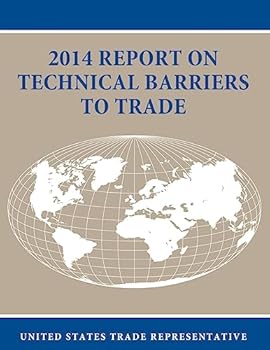2014 Report on Technical Barriers to Trade
This year the USTR publishes its fifth annual Report on Technical Barriers to Trade (TBT Report). This report was created to respond to the concerns of U.S. companies, farmers, ranchers, and manufacturers, which increasingly encounter nontariff trade barriers in the form of product standards, testing requirements, and other technical requirements as they seek to sell products and services around the world. As tariff barriers to industrial and agricultural trade have fallen, some standards-related measures have emerged as a key concern. Governments, market participants, and other entities can use standards-related measures as an effective and efficient means of achieving legitimate commercial and policy objectives, such as protection of the environment, human health and safety. But when standards-related measures are outdated, overly burdensome, discriminatory, or otherwise inappropriate, these measures can reduce competition, stifle innovation, and create unnecessary technical barriers to trade. These kinds of measures can pose a particular problem for small and medium sized enterprises (SMEs), which often do not have the resources to address these problems on their own. USTR is committed to identifying and combating unwarranted technical barriers to U.S. exports, many of which are detailed in this report. Since the last TBT Report was released, the United States has significantly advanced its efforts to resolve concerns with standards-related measures that act as unjustifiable barriers to trade and to prevent their emergence. USTR will continue its work to resolve and prevent standards-related trade concerns through new and existing cooperative initiatives in the World Trade Organization (WTO), Asia Pacific Economic Cooperation Forum (APEC), U.S. free trade agreements (FTAs), and other fora. In addition USTR will continue working to conclude on the negotiation of a modernized Technical Barriers to Trade (TBT) chapter in the Trans-Pacific Partnership (TPP) that builds on and strengthens TBT disciplines contained in the WTO Agreement on Technical Barriers to Trade (TBT Agreement). In addition, in June 2013, President Obama and European Union (EU) leaders launched negotiations on a comprehensive trade and investment agreement, the Transatlantic Trade and Investment Partnership (T-TIP). As conveyed in the February 2013 United States-European Union High Level Working Group on Jobs and Growth (HLWG) Final Report, the United States and the EU are committed to working together to open markets in goods, services and investment, reduce nontariff barriers, and address global trade issues of common concern. Both parties seek to build on the horizontal disciplines of the WTO TBT Agreement, establish ongoing mechanisms for improved dialogue and cooperation for addressing bilateral technical barriers to trade (TBT) issues, and pursue opportunities for greater regulatory compatibility with the objective of reducing unnecessary costs stemming from regulatory differences in specific sectors. Again in 2014, USTR will engage vigorously with other agencies of the U.S. Government, as well as interested stakeholders, to press for tangible progress by U.S. trading partners in removing unwarranted or overly burdensome technical barriers. We will fully utilize our toolkit of bilateral, regional and multilateral agreements and mechanisms in order to dismantle unjustifiable barriers to safe, high quality U.S. industrial, consumer, and agricultural exports and strengthen the rules-based trading system. Recognizing that U.S. economic and employment recovery and growth continue to rely importantly on the strength of U.S. exports of goods, services, and agricultural products; we will be redoubling our efforts to ensure that the technical barriers that inhibit those exports are steadily diminished.
Format:Paperback
Language:English
ISBN:1511466391
ISBN13:9781511466394
Release Date:March 2015
Publisher:Createspace Independent Publishing Platform
Length:102 Pages
Weight:0.57 lbs.
Dimensions:0.2" x 8.5" x 11.0"
Customer Reviews
0 rating





